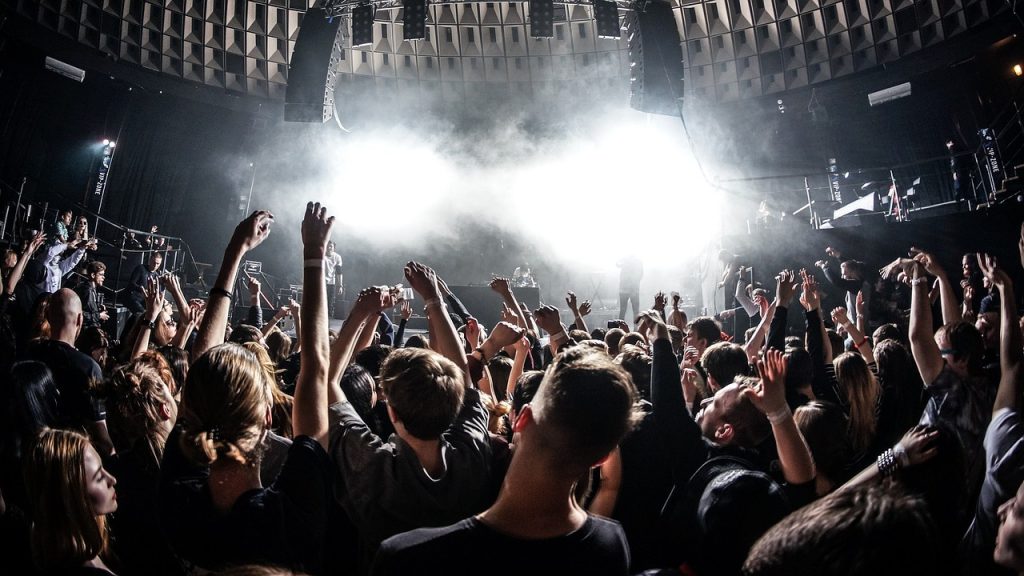
Going to large events – music concerts, theatre performances, comedy shows – can be nerve-wracking for anyone, but living with mental illness can exacerbate an already intimidating situation. Often, venues hosting such events will accommodate for physical disabilities – by providing access ramps and wheelchair spaces, accommodating visual impairments and allowing assistance dogs – but these disability requirements seldom include safeguarding for sufferers of mental illness. In the same way that a wheelchair-user would be deterred from attending an event catering solely for an able-bodied audience, those with anxiety or panic disorders often avoid overwhelming situations. This is an issue that is often overlooked, but ignorance and stigma makes it easy for venue and event management to look the other way when it comes to mental health issues.
Quick science lesson: anxiety is characterised by excessive worry and the expectation of future threat, caused by an imbalance of neurotransmitters in the brain. People with anxiety disorders can experience muscular tension, fatigue, restlessness and difficulty concentrating, and these symptoms – although manageable – can severely impact on daily functioning. Large crowds, dark rooms, and music-so-loud-your body-vibrates only adds to the physiological effect of the condition. It makes sense then, that anxiety-sufferers avoid these situations at all costs, right? Although no one should be branded ‘boring’ or ‘lazy’ for avoiding a situation they know is going to cause discomfort or stress, the means should be in place to make it a little easier for those with these ‘invisible illnesses’.
Quick science lesson: anxiety is characterised by excessive worry and the expectation of future threat, caused by an imbalance of neurotransmitters in the brain
This is not an issue that has gone completely unnoticed. Sofie Hagen, a Danish stand-up comedian living in London, has taken steps to make all of the shows on her tours ‘anxiety-safe’ by offering audience members the opportunity to email her prior to the event in order to make specific arrangements which would lessen their anxiety. These include being let into the venue in advance to avoid the crowds or having specific seats saved for them – even something as seemingly inconsequential as an aisle seat could make a huge difference if someone felt the need to leave mid-performance. She also promises zero audience participation – anyone who has struggled with anxiety has likely felt the shudder-inducing dread produced by any mention of these two words. Hagen describes these decisions as “based on logic and empathy”, and as someone who has experienced anxiety herself, she understands that gigs like hers can be difficult places for people with lived experience of mental health problems.
‘Anxiety-safe’ is a controversial term to begin with – anxiety is irrational and can arise at any time, so it’s difficult to predict and prepare for in advance. A panic attack can hit unexpectedly, and often no safeguarding is going to be able to prevent it. However, the steps Hagen is taking are still important in making people with mental health issues feel safe and accepted going to events that are typically outside their comfort zone. Situation avoidance is a common, but not necessarily healthy, way of dealing with anxiety, so any action taken to put people at ease is a step in the right direction. There will always be people who think differential treatment is unfair. Why should they not be able to skip the queue? Why should they not get to choose their exact seat? But mental illness is not fair either. It’s not fair that people miss out on an event they’ve spent months looking forward to because of a bad mental health day.
Unfortunately, the vast majority of venues still won’t make any exceptions for people with mental health issues, so whilst we wait for them to accommodate the lived experience of literally millions of people, I have a few tips. When going to a large event, know your limits and do your research – does the venue allow re-admission if you need to leave in the middle? If you don’t like confined spaces and large crowds, can you get seated tickets rather than standing? Take a friend, take a bottle of water, and know that you haven’t failed if you need to leave. Email in advance if you need extra assistance – who knows, they might be willing to help!
